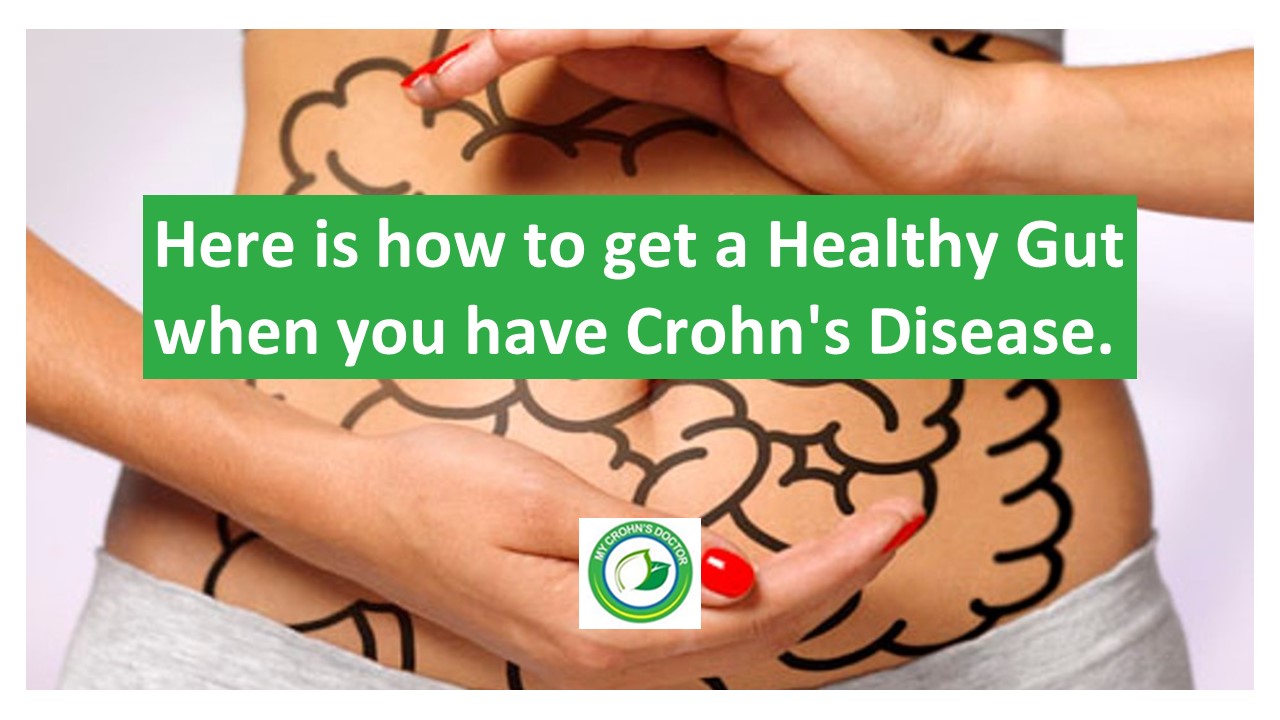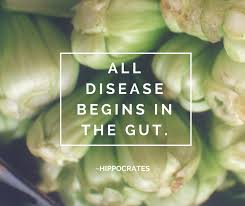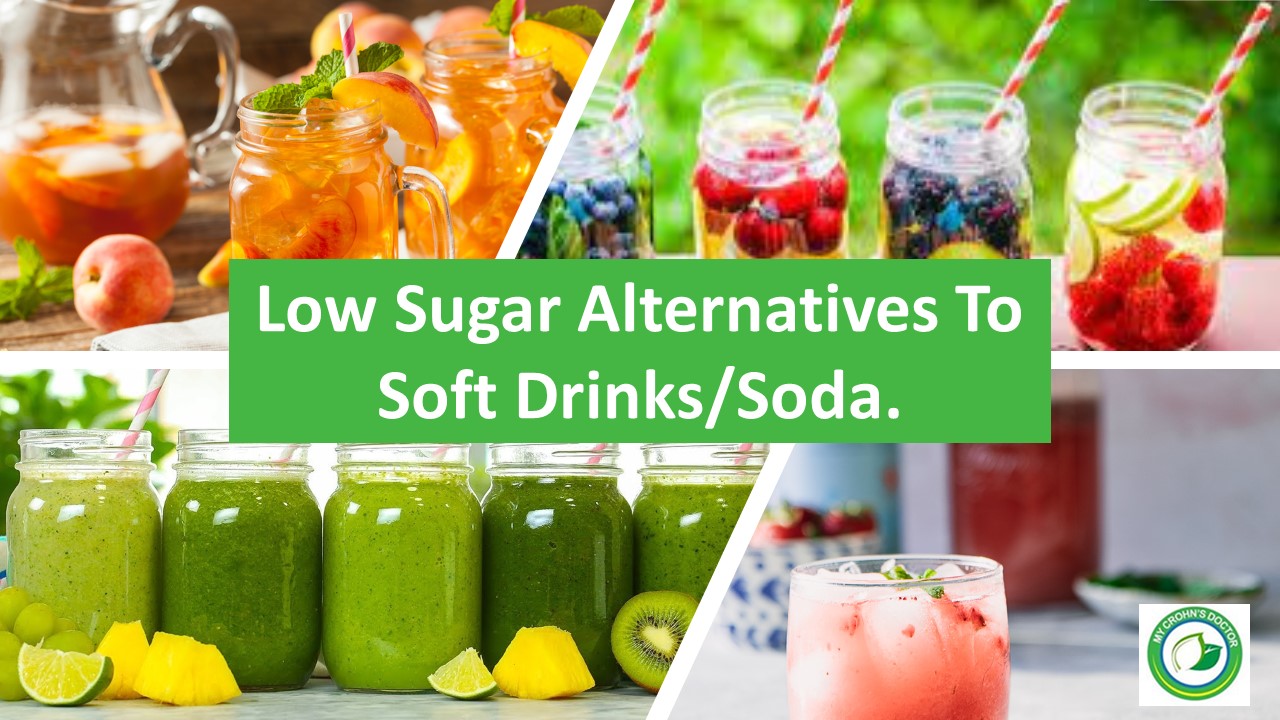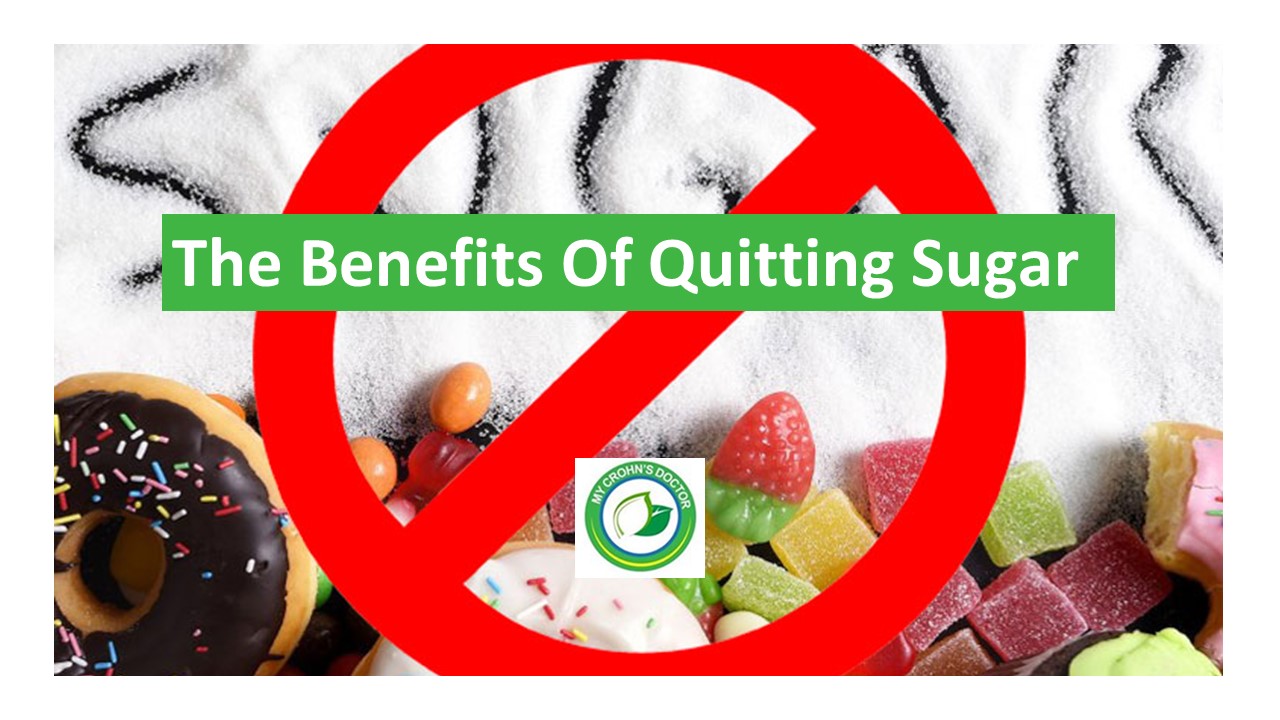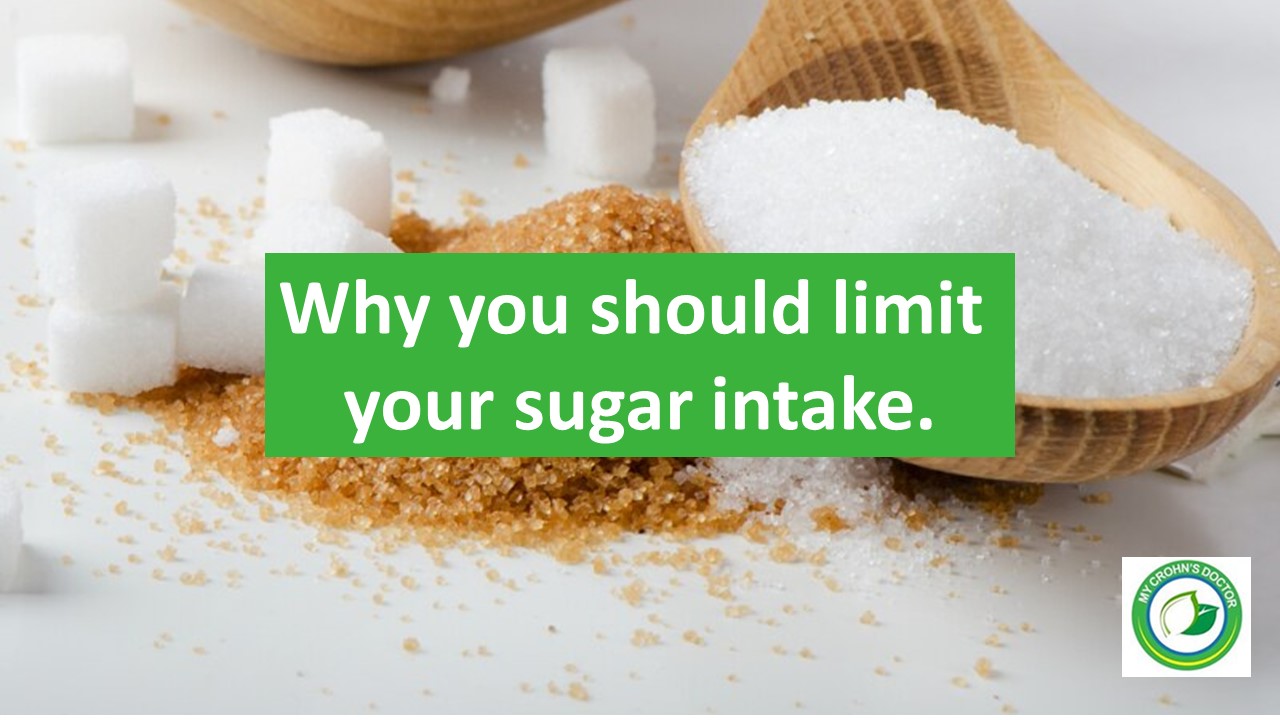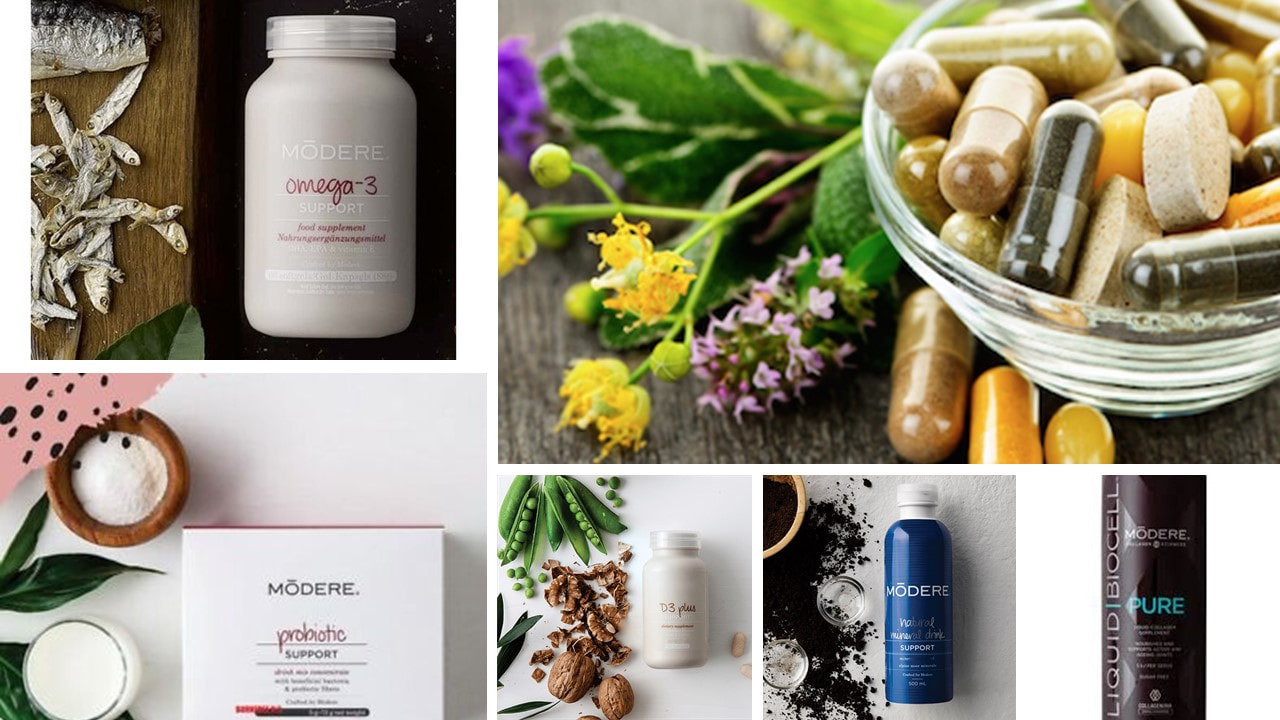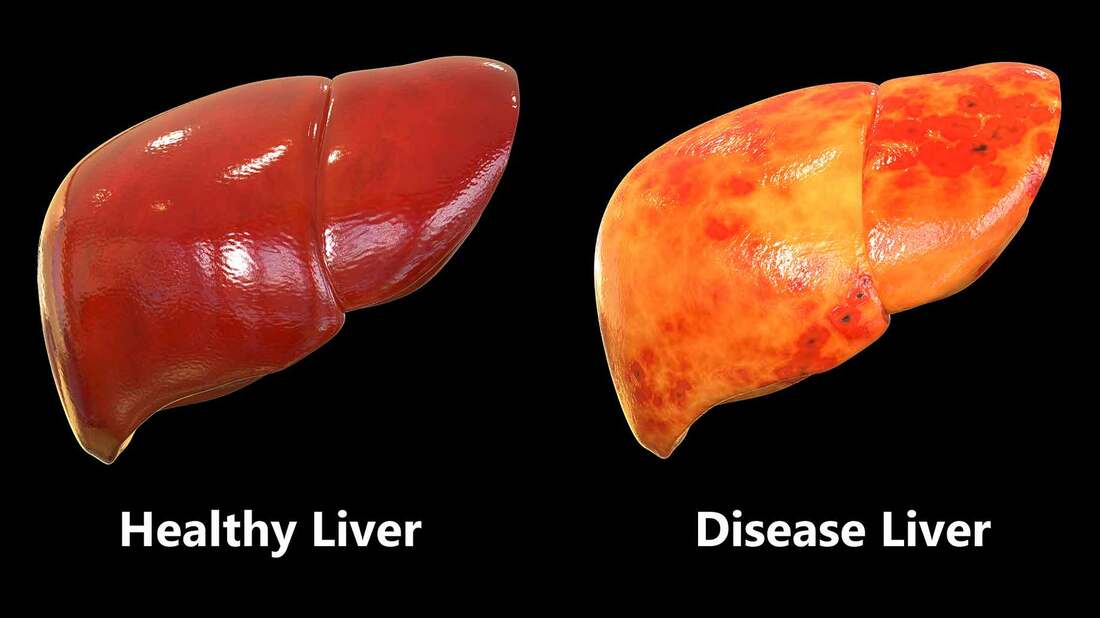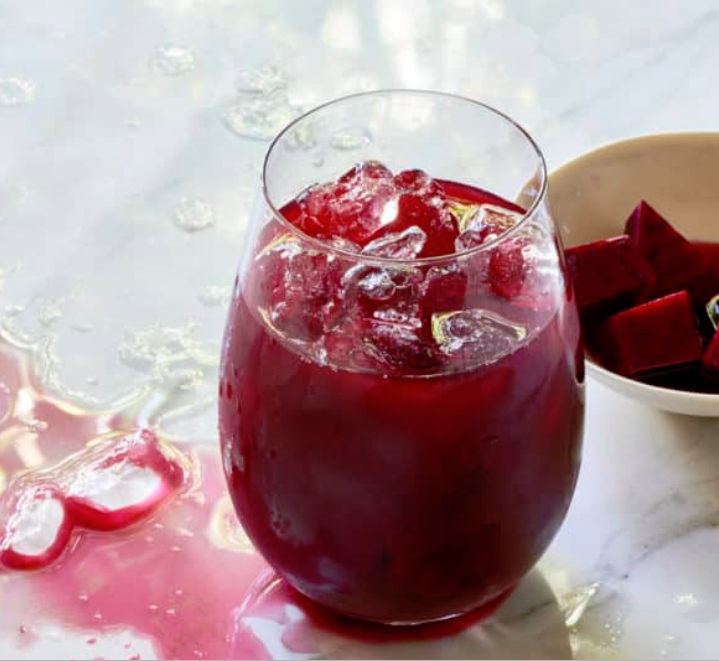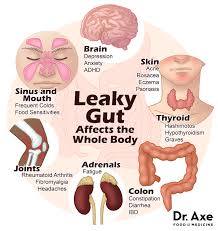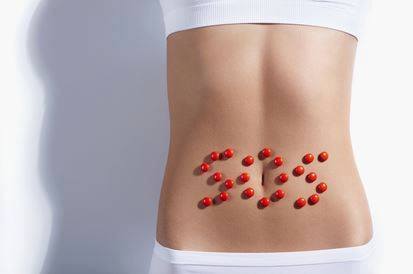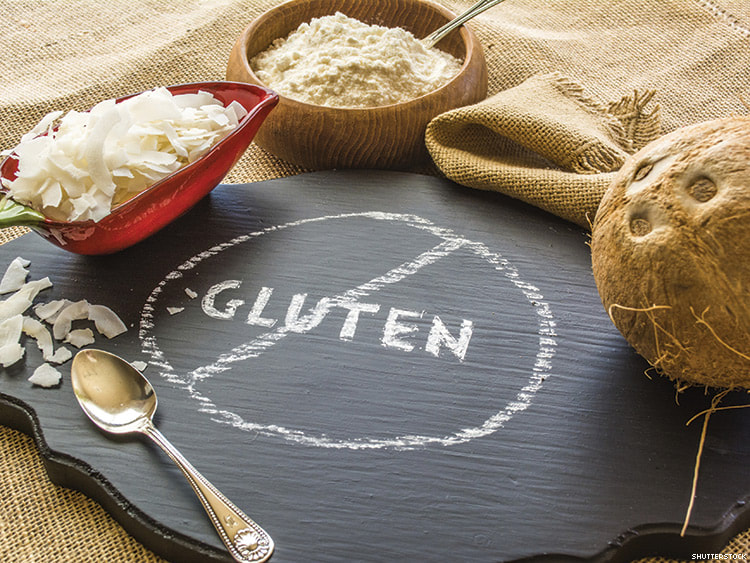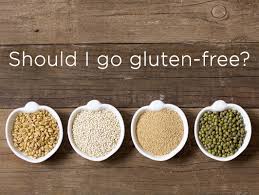|
Ok, firstly, we all have Crohn's disease. So, we have an unhealthy gut. Nothing new about that bit of information. However, we can all work on these four key elements that promote healthy digestive functioning. These four key elements are ✅ maintaining the integrity of the gut lining ✅ having a healthy balance of bacteria in the gut ✅ adequate digestive enzyme function to break down foods ✅ and eating a healthy and nutritious diet. It may seem simple enough, but if one of these areas is out of balance, it will impact your digestion and, therefore, your overall health. Bacteria Aren't Always the Enemy.Our gut is home to a vast population of microbes. There is a perfect balance of good and bad bacteria specific to you as an individual. When this harmony between your microbes goes out of balance, you may start to experience symptoms. Probiotics are a way of restoring the right amount of good bacteria and making that balance just right. 🚨 Lactobacillus acidophilus (NCFM) is a probiotic that helps to colonise the gut full of good bacteria and helps to reduce the harmful bacteria for a healthy digestive balance. 🚨 Bifidobacterium lactis (Bi-07), another probiotic strain, can be beneficial during and after antibiotics and can relieve symptoms such as flatulence, diarrhoea and constipation. Put Up Your Best GuardThe first element of a healthy gut is the lining of the digestive tract. The lining is made up of several layers of cells and mucous; this barrier is the only internal part of your body exposed to the outside world. The lining of our gut protects your insides from being exposed to foreign particles and acid. Anyone can have barrier issues, as even stress, drinking coffee and alcohol, and poor dietary choices can damage the lining of your gastrointestinal tract. So because we have a digestive issue, it makes sense our lining is less than ideal. The following nutrients help maintain a healthy gut lining: 🚨Glutamine is an amino acid beneficial for protecting and healing the gut. Glutamine energises the cells in your gut and helps repair your lining after trauma from infections, food intolerances and anti-inflammatory medications that affect the gut. 🚨 GutGard® liquorice is a potent anti-inflammatory, soothing the lining of the gut and speeding healing time. It has been proven to improve symptoms, including heartburn, abdominal pain, bloating, and nausea. Enzymes for Digesting Your body creates enzymes to do a multitude of functions, including the breakdown and digestion of food. The following enzymes support digestive health: • Hydrochloric acid is a gastric enzyme in stomach acid, helping to break down food and eliminate harmful bacteria and microbes introduced to the digestive tract. 🚨 Pancreatic enzymes are produced by the pancreas and are dispensed through pancreatic juice. These enzymes are involved in the digestion of proteins, fats and carbohydrates in the stomach. 🚨 Brush border enzymes are found in your intestines and further digest food particles. 🚨 Bile helps to break down fats and is needed for cholesterol synthesis. Eating a Healthy DietThe final part to this puzzle is to eat a healthy diet. This can at times prove to be the most difficult for someone who has Crohn's disease. If you would like assistance then we are here to HELP. Remember if you have any more questions about this or any topic then please free to email me at [email protected] or visit my Facebook Page at My Crohn's Doctor. Yours in Health and Wellness Dr Michael My Crohn's Doctor
www.mycrohnsdoctor.com LEGAL DISCLAIMER - This article (including links to any/all website pages, blog posts, blog comments, forum, videos, audio recordings, etc.) is not intended to replace the services of a physician, nor does it constitute a doctor-patient relationship. Information is provided for informational purposes only and is not a substitute for professional medical advice. You should not use the information for diagnosing or treating a medical or health condition. If you have or suspect you have an urgent medical problem, promptly contact your professional healthcare provider. Any application of the recommendations in this email is at the reader's discretion. My Crohn's Doctor and Dr Michael are not liable for any direct or indirect claim, loss or damage resulting from the use of this email. Readers should consult their own physicians concerning the recommendations in this article.
0 Comments
Soft drinks/Soda is one of the biggest sources of hidden sugars in our diet. A single can of soft drinks/soda contains a staggering 33g of sugar. However, if you’re used to chugging soft drinks/soda every day, making the transition to drinking just water can be difficult. That’s why in this post we’re going to be sharing some healthy, low sugar alternatives to soft drinks/soda that you can enjoy today. 1. Fruit Juice Spritzers Fruit juice spritzers are a great place to start when quitting soft drinks/soda. They contain around a third of the sugar that you’ll find in a can of soft drinks/soda (12g of sugar per cup), taste sweet and are carbonated. While fruit juice spritzers are probably not something you want to be drinking every day if you’re cutting back on sugar, they’re still a much better choice than soft drinks/soda. To prepare a fruit juice spritzer simply combine half a cup of your favorite fruit juice with half a cup of soda water and enjoy. Even a soda water with sliced lemon is delicious. 2. Green Smoothies If you choose the right ingredients, you can easily create green smoothies that contain less than 10g of sugar and still have a subtle sweet taste. The great thing about green smoothies is that because they’re packed full of fibre, vitamins and minerals, any sugar they contain will be released into your bloodstream slowly, so you won’t experience any of the energy surges and crashes that usually come with sugar consumption. To find low sugar green smoothie recipes, simply do a search online and experiment with the recipes that come up until you find one that you like. This can also be away for you to get your greens by drinking them instead of eating them if they are a trigger for you. 3. Fruit Infused Water Fruit infused water contains no sugar or calories, so is perfect if you’re on a sugar detox. It shares the same benefits of standard water and will keep you hydrated, brighten your skin and enhance your energy levels. However, the fruit infusion gives it a subtle and sweet flavor, so if you find standard water too bland, give fruit infused water a try. To prepare fruit infused water, you’ll need a mason jar and a cup of 2-3 chopped fruits that you’d like to infuse into the water. Once you have the fruits ready, place them in the mason jar, fill it with water and then allow it to infuse in the fridge for at least 24 hours. 4. Fruit Tea Like fruit infused water, fruit tea contains zero calories and sugar, and is just as healthy as standard water. However, even without any sugar, it has a surprisingly strong, sweet and satisfying flavor. There are lots of different fruit teas you can try and each one has a very distinctive flavor and offers differing health benefits. Your local store should sell a wide range of fruit teas, so try a few different teas until you find a favorite. 5. Coffee Coffee isn’t sweet but it’s still tasty, hydrating and contains no sugar. If you drink it instead of soda, you’ll cut out 33g of sugar per day. To ensure that your coffee contains no sugar, avoid buying it in coffee shops and drink it black or with milk. If you have any more questions then please free to email me at [email protected] or visit my Facebook Page at My Crohn's Doctor. Yours in Health and Wellness Dr Michael My Crohn's Doctor
www.mycrohnsdoctor.com LEGAL DISCLAIMER - This article (including links to any/all website pages, blog posts, blog comments, forum, videos, audio recordings, etc.) is not intended to replace the services of a physician, nor does it constitute a doctor-patient relationship. Information is provided for informational purposes only and is not a substitute for professional medical advice. You should not use the information for diagnosing or treating a medical or health condition. If you have or suspect you have an urgent medical problem, promptly contact your professional healthcare provider. Any application of the recommendations in this email is at the reader's discretion. My Crohn's Doctor and Dr Michael are not liable for any direct or indirect claim, loss or damage resulting from use of this email. Readers should consult their own physicians concerning the recommendations in this article. Want to kick your sugar habit but still satisfy your sweet tooth? Then you’re in luck. Below we’ll be discussing five healthy, natural alternatives to refined sugar. Use them to sweeten your coffee, add extra flavor to your yogurt or whenever you want to add a touch of sweetness to your dish without indulging in refined sugar. 1. Stevia Stevia is one of the most popular natural sweeteners. This herb which comes from South America is 300 times sweeter than refined sugar. It contains zero calories, so is a great choice if you’re trying to lose weight. Plus, it has no glycemic impact, so it’s a perfect refined sugar alternative if you’re diabetic. Stevia is also very easy to digest which means you won’t suffer from any of the digestive problems that are often associated with sugar substitutes. 2. Coconut Sugar Coconut sugar is created by heating the sap from coconut palms. Unlike refined sugar, coconut sugar doesn’t de-stabilize your energy levels, so is ideal if you want to stay productive and focused during the day. Like stevia, it’s also a great choice if you suffer from diabetes because it won’t disrupt your blood sugar levels. Another great thing about coconut sugar is that it supplies your body with nutrients as it sweetens and is a good source of calcium, iron, potassium and zinc. 3. Date Sugar Date sugar is made by grinding down dehydrated dates into sugar sized granules. As you’d expect from the production process, it has the same rich and sweet flavor of fresh dates, and shares all their health benefits. These health benefits include promoting healthy digestion, strengthening your heart and lowering your blood pressure. The main negative of date sugar is that it doesn’t melt or dissolve easily, so it’s not a good choice if you want to sweeten your drinks. 4. Honey Honey is sweeter than refined sugar and has a much greater range of health benefits. It contains high levels of vitamins and minerals which support many vital processes within the body. It also has antibacterial and antifungal properties, so is a perfect sweetener for boosting your immunity. Unlike refined sugar, honey is also great for your skin and can help make it brighter, smoother and more radiant. It tastes great in tea and can also be used as a replacement for sugar in many recipes. 5. Maple Syrup Maple syrup contains around half the calories of refined sugar and is a much more nutritious choice. It’s loaded with antioxidants which protect your body’s cells from damage and reduce the visible signs of aging. Maple syrup is also a brilliant source of the manganese and zinc which boost your metabolism and your immune system. In addition to this, it’s great for your skin and can protect against skin blemishes, dry skin and redness. Finally, maple syrup has been shown to protect against a range of chronic ailments and diseases including arthritis, cancer, diabetes, inflammatory bowel disease and heart disease. If you have any more questions then please free to email me at [email protected] or visit my Facebook Page at My Crohn's Doctor. Yours in Health and Wellness Dr Michael My Crohn's Doctor
www.mycrohnsdoctor.com LEGAL DISCLAIMER - This article (including links to any/all website pages, blog posts, blog comments, forum, videos, audio recordings, etc.) is not intended to replace the services of a physician, nor does it constitute a doctor-patient relationship. Information is provided for informational purposes only and is not a substitute for professional medical advice. You should not use the information for diagnosing or treating a medical or health condition. If you have or suspect you have an urgent medical problem, promptly contact your professional healthcare provider. Any application of the recommendations in this email is at the reader's discretion. My Crohn's Doctor and Dr Michael are not liable for any direct or indirect claim, loss or damage resulting from use of this email. Readers should consult their own physicians concerning the recommendations in this article. You probably know all about the dangers of refined sugar. It rots your teeth, increases your risk of chronic disease and much more. But quitting refined sugar doesn’t just allow you to avoid these adverse effects; it also allows you to enjoy a range of benefits. The list below highlights five of the top benefits you can enjoy by quitting refined sugar. 1. Enhanced Energy Levels Refined sugar enters your bloodstream almost instantly, which causes your energy levels to surge and crash quickly. When you start to eat less refined sugar, these fluctuations in energy levels will become a thing of the past, and you’ll find that you generally have much more energy throughout the day. Not only does this help you feel great, but it also makes you much more productive and allows you to perform all your daily tasks effectively. 2. Younger Looking Skin One of the biggest negatives of consuming refined sugar is that it damages your skin in numerous ways. First, it causes the collagen and elastin in your skin to become inflamed. These structural proteins help your skin stay firm and youthful-looking. When they constantly become inflamed due to regularly eating large amounts of refined sugar, they become less effective, which causes your skin to sag and wrinkles to form. Second, the inflammation caused by eating sugar has been shown to aggravate various skin disorders, including acne (a disorder characterized by red pimples on the skin) and rosacea (a skin disorder characterized by burning and redness). When you stop eating refined sugar, you’ll also stop damaging your skin in the ways described above, and you’ll find that it looks much smoother, more vibrant and youthful. 3. Better Sleep The energy can surge and crash caused by eating lots of refined sugar are very disruptive to your sleep patterns. They make it difficult to sleep and have a negative impact on your sleep quality when you do manage to fall asleep. Cutting sugar out of your diet stops it wreaking havoc on your sleep cycles and allows you to enjoy restful, better quality sleep. 4. Stronger Immunity Numerous studies have shown that refined sugar is a huge contributor to chronic disease. It causes inflammation in the body, damages your blood vessels, and negatively impacts your vital organs, which leaves you open to a wide range of ailments, illness, and diseases. Reducing your intake of refined sugar stops it from damaging your body in this way and allows it to heal. Not only does this make you less susceptible to ailments that are directly caused by refined sugar, but it also boosts your overall immunity. If you have any more questions then please free to email me at [email protected] or visit my Facebook Page at My Crohn's Doctor. Yours in Health and Wellness Dr Michael My Crohn's Doctor
www.mycrohnsdoctor.com LEGAL DISCLAIMER - This article (including links to any/all website pages, blog posts, blog comments, forum, videos, audio recordings, etc.) is not intended to replace the services of a physician, nor does it constitute a doctor-patient relationship. Information is provided for informational purposes only and is not a substitute for professional medical advice. You should not use the information for diagnosing or treating a medical or health condition. If you have or suspect you have an urgent medical problem, promptly contact your professional healthcare provider. Any application of the recommendations in this email is at the reader's discretion. My Crohn's Doctor and Dr Michael are not liable for any direct or indirect claim, loss or damage resulting from use of this email. Readers should consult their own physicians concerning the recommendations in this article. Sugar is one of the most harmful ingredients you can put in your body but it’s something many of us eat far too much of. According to the latest stats the average American eats 76.7g of sugar every day – the equivalent of 19 teaspoons per day. The average Australian eats 60 grams and the average Brit eats 100 gm per day. Below I’ll be discussing five of the main reasons you should limit your consumption of sugar. 1. It Has No Nutritional Value One of the biggest reasons to avoid refined sugar is that it contains no vitamins, minerals or antioxidants. These nutrients are found in almost every healthy, natural food and are essential for your body’s survival. They support all the internal processes in your body, protect against illness and allow you to perform at your peak. Eating too much refined sugar often stops you getting the vitamins, minerals and antioxidants your body needs from your diet and causes nutrient deficiencies. These nutrient deficiencies can cause you to feel sluggish, affect how you perform and lead to other serious health problems other then your Crohn's Disease. 2. It Disrupts Your Energy Levels Sugar enters the bloodstream quickly and causes a rapid surge in energy levels, followed by a rapid crash. While the initial sugar high may give you a few minutes of increased energy and focus, the overall impact of these constant fluctuations in energy caused by eating too much refined sugar is negative. It makes it very difficult to concentrate for long periods of time, causes you to become unproductive and makes you feel lethargic. 3. It Causes Weight Gain Unlike proteins and fats which take longer to digest and have a satiating effect on the body, sugar passes through the digestive system very quickly and doesn’t satisfy your appetite. As a result, you still crave additional after filling up on refined sugar and are very likely to overeat. Sugar is also hidden in many foods such as breads, sauces and sodas. Because it doesn’t satisfy your appetite in the same way that other foods do, these hidden sugars add extra calories without you even noticing and cause you to gain weight. While this might seem great if you are struggling with your weight IT IS NOT the healthy way to do it. 4. It Causes Liver Damage Many of the refined sugars in foods come in the form of fructose. When you eat too much fructose, it overloads the liver and causes it to turn fructose into fat. This then leads to fatty liver disease and many other liver problems which have a negative impact on your energy levels, digestion and overall health. 5. It Causes Inflammation In The Body Numerous studies have shown that eating large amounts of refined sugar can cause excessive inflammation in the body. Not only is this excessive inflammation painful but it also damages your body’s cells and vital organs, and can cause permanent health problems. Inflammation in the body has also been linked with accelerated internal and external aging. Plus, it is also one of the biggest risk factors for chronic diseases such as cancer, diabetes and heart disease. WE HAVE ENOUGH TO DEAL WITH WITHOUT PILING ON, RIGHT? If you have any more questions then please free to email me at [email protected] or visit my Facebook Page at My Crohn's Doctor. Yours in Health and Wellness Dr Michael My Crohn's Doctor
www.mycrohnsdoctor.com LEGAL DISCLAIMER - This article (including links to any/all website pages, blog posts, blog comments, forum, videos, audio recordings, etc.) is not intended to replace the services of a physician, nor does it constitute a doctor-patient relationship. Information is provided for informational purposes only and is not a substitute for professional medical advice. You should not use the information for diagnosing or treating a medical or health condition. If you have or suspect you have an urgent medical problem, promptly contact your professional healthcare provider. Any application of the recommendations in this email is at the reader's discretion. My Crohn's Doctor and Dr Michael are not liable for any direct or indirect claim, loss or damage resulting from use of this email. Readers should consult their own physicians concerning the recommendations in this article. When the year starts coming to an end, and you have gotten through your holiday planning, the next thing you probably focus on is the next year. What goals you have, and what your New Years’ Resolutions will be. If you want to stick to them this year, the number one most important thing to do is keep them realistic and attainable. Here are some tips for setting realistic resolutions that you will actually stick to. Make Them SMART Any time you read about setting realistic goals, this probably comes up. That is because of how essential it is! This acronym was created in 1981 and is still used today. SMART stands for Specific, Measurable, Achievable, Relevant, and Time-Bound or Time-Sensitive. This means you want to set new years’ resolutions that are specific and detailed, can be measured with the progress, are realistically achievable, relevant to the goals you have for your life, and have a time when they should be completed. Start with the Ultimate Goal, Then Break it Down For a realistic new years’ resolution, you want to start big, but then break it down into actionable steps. Many people want to be healthy or reduce their symptoms as their resolution, which is a great goal, but it is too broad and often too grand of a goal. Saying you want to be healthy is much too broad, while saying you want to reduce your symptoms is too big to start with. So reduce your goals into smaller bite size pieces. You know how many bad days you have in a month. Aim to reduce it by 10%. List the steps needed to do this and then break that down into mini actions you complete on a daily or weekly basis throughout the year. Understand WHY You Want Each Resolution Have you ever made a list of things you want to do or achieve, but didn’t really feel excited when writing about it? This is a good sign that you have the wrong intention behind it. You probably thought it was just something you were supposed to do, or you were following along with your friends. If you don’t feel excited in the beginning, you will never gain enough momentum to see it through. Create an Actionable Step-by-Step Plan Finally, choose a few small goals and create a step-by-step plan for each one. List down the steps you need to do in order to achieve that goals. This might include eating less carbs, giving up smoking, starting a fitness routine, drinking more water, and changing your diet. NOTE: If you are not sure what the steps are, then it isn’t a realistic resolution to have. If you are having any trouble setting your goals then please check out these FREE resources HERE If you have any more questions then please free to email me at [email protected] or visit my Facebook Page at My Crohn's Doctor. Yours in Health and Wellness Dr Michael My Crohn's Doctor
www.mycrohnsdoctor.com LEGAL DISCLAIMER - This article (including links to any/all website pages, blog posts, blog comments, forum, videos, audio recordings, etc.) is not intended to replace the services of a physician, nor does it constitute a doctor-patient relationship. Information is provided for informational purposes only and is not a substitute for professional medical advice. You should not use the information for diagnosing or treating a medical or health condition. If you have or suspect you have an urgent medical problem, promptly contact your professional healthcare provider. Any application of the recommendations in this email is at the reader's discretion. My Crohn's Doctor and Dr Michael are not liable for any direct or indirect claim, loss or damage resulting from use of this email. Readers should consult their own physicians concerning the recommendations in this article. If you have Crohn's disease, you have to be very careful about what you put into your mouth whether it is food, drinks, herbs, or even vitamins and supplements. If you are going to supplement your diet make sure you select the supplements that are going to be beneficial to your health and also improve the quality of your life. I have included my recommendations that may be beneficial to your health. They have certainly helped me. NOTE: It's important to regularly test your levels with blood tests. PROBIOTICS. Probiotics or good bacteria is indeed a buzz word at the moment. They are believed to provide a positive benefit for your digestion. Probiotics are available to have on their own and are even available in many food products. You must make sure you are consuming the good bacteria. These do the best job of keeping away the harmful bacteria that might aggravate your Crohn’s disease symptoms. OMEGA-3 FATTY ACIDS We all know the benefits of Omega-3 Fatty Acids, they fight inflammation in your body. It makes sense then that they may help the tissues most affected by Crohn’s disease. If we wish to consume them in food, we can get them in flaxseed oil and deep-sea fish like salmon. Most people find it is easier to take them as a supplement. VITAMIN D Vitamin D seems like it is the hot supplement of the moment. We are being bombarded with information. Experts believe Vitamin D plays a significant role in regulating our immune response. We know Crohn’s Disease is an inflammatory condition which may be triggered by our immune system so vitamin D can then play a useful role. Our bodies can make Vitamin D naturally through sunlight but with the dangers of too much sun exposure consuming Vitamin D in food or through supplementation seems like a better option. IRON If you have Crohn’s disease, you may have a problem with the absorption of iron. As iron plays a vital role in keeping your blood healthy and maintaining your energy and sense of well-being, it is important to know if you are deficient. Make sure your doctor tests you and if you are a good quality supplement will be critical in helping you on the path to wellness. VITAMIN A This vitamins role is to support your immune system which tells us that it will be beneficial to those who have Crohn's disease. Unfortunately, some sufferers have a hard time absorbing Vitamin A so taking a good quality multivitamin which contains the minimum daily requirement is recommended. If you also wish to incorporate eating extra Vitamin A in your diet make sure you eat foods like sweet potatoes, carrots, and dark leafy greens. ZINC Zinc is essential as it helps heal your tissues and assists in building strong bones throughout your life. It has been noted that some Crohn's patients are deficient in Zinc. So making sure you get enough zinc if you have Crohn's disease it is essential to make sure you are consuming enough. Zinc can be found in dark chocolate and oysters. Seeds such as sesame or pumpkin seeds or foods containing seeds like watermelon are also high in zinc. However, remember that sometimes people living with Crohn's have trouble with seeds so be very careful. CALCIUM Calcium is one of the essential supplements for those who have Crohn's disease. This is because sufferers often take high doses of steroids to help manage their symptoms and this puts them at a higher risk of bone loss later in their life. Consuming sufficient calcium also reduces the risk for cancers associated with Crohn's disease, such as colon cancer. Make sure you consume Vitamin D with your calcium as it helps with better absorption of the calcium. Also eat foods rich in calcium such as milk, spinach and almonds BUT remember to watch eating almonds if nuts are a problem for you. Lemongrass Lemongrass has been found, through research in Japan, to help ease some of the inflammation and irritation associated with Crohn's disease. It is also easy to add to your diet as it is very recipe friendly as a lot of Asian dishes, mainly Thai food, use lemongrass in their ingredient lists. You can also get this in pill form. Turmeric Turmeric is believed to be anti-inflammatory and has been used to treat inflammation for a long time. It can be added to stews and curries, but because of the implications of eating spicy food, it is better to consume it in capsule form. Curcumin is the clinical name of turmeric. Green Tea Green tea has many healing properties. It is believed to reduce the inflammation associated with Crohn's disease. Some studies have even shown that green tea can reduce the risk of developing colon cancer. So make sure you boil up a cup of green tea and enjoy it hot or turn it into a refreshing iced tea by adding mint. At My Crohn's Doctor we are passionate about great health and wellness. As a result we only recommend and partner with the BEST products that will help you achieve your health and wellness goals. If you have any more questions then please free to email me at [email protected] or visit my Facebook Page at My Crohn's Doctor. Yours in Health and Wellness Dr Michael My Crohn's Doctor www.mycrohnsdoctor.com LEGAL DISCLAIMER - This article (including links to any/all website pages, blog posts, blog comments, forum, videos, audio recordings, etc.) is not intended to replace the services of a physician, nor does it constitute a doctor-patient relationship. Information is provided for informational purposes only and is not a substitute for professional medical advice. You should not use the information for diagnosing or treating a medical or health condition. If you have or suspect you have an urgent medical problem, promptly contact your professional healthcare provider. Any application of the recommendations in this email is at the reader's discretion. My Crohn's Doctor and Dr Michael are not liable for any direct or indirect claim, loss or damage resulting from use of this email. Readers should consult their own physicians concerning the recommendations in this article.
A healthy liver is necessary for a healthy body. as it assists with Digestion, the smooth running of the lymphatic system, regulating blood sugar, and having a healthy and glowing skin. The liver works to filter out toxins, so keeping your liver in tip-top shape is so important to keep your body functioning properly. Especially if you suffer from Crohn's disease. HOW DO I CLEAN IT? I am actually not a fan of a detox. It can put a lot of stress on your body. Even more so if you suffer from Crohn's disease. I believe the symptoms associated with a detox may be too severe for us and we already have enough to deal with symptom wise on a day to day basis. SO, WHAT DO I DO? So the key to a healthy liver is to maintain its harmony and balance. Keep it healthy rather than try to get it healthy. Here are some foods and supplements that will help the liver do its work better.
Below is a Liver Cleansing Juice via The Blender Girl Liver Cleansing Beet Carrot Apple Ginger Juice. This beet carrot apple ginger juice is sweet and delicious, and loaded with nutrients to help to build healthy blood, and clear toxins from the bowels. Prep Time 10 minutes Total Time 10 minutes Servings 1 (16-ounce glass or 480ml approx) Author Tess Masters Ingredients
Instructions
Recipe Notes Photo by Trent Lanz; styling by Alicia Buszczak If you have any more questions then please free to email me at [email protected] or visit my Facebook Page at My Crohn's Doctor. Yours in Health and Wellness Dr Michael My Crohn's Doctor www.mycrohnsdoctor.com LEGAL DISCLAIMER - This article (including links to any/all website pages, blog posts, blog comments, forum, videos, audio recordings, etc.) is not intended to replace the services of a physician, nor does it constitute a doctor-patient relationship. Information is provided for informational purposes only and is not a substitute for professional medical advice. You should not use the information for diagnosing or treating a medical or health condition. If you have or suspect you have an urgent medical problem, promptly contact your professional healthcare provider. Any application of the recommendations in this email is at the reader's discretion. My Crohn's Doctor and Dr Michael are not liable for any direct or indirect claim, loss or damage resulting from use of this email. Readers should consult their own physicians concerning the recommendations in this article.
So you know you have Crohn’s disease. You probably know then that your gut health is the gateway to your own health. If your gut is healthy, chances are that you're in good health. Makes sense, right? Well, there's also a condition called leaky gut that can lead to a host of other health problems. Crohn’s disease may not be the only thing giving you grief. The chronic inflammation of IBD literally eats away at our mucosal protective lining and exposes us to entry into our body of food materials and other foreign particles which enter our lymphatics and blood stream to make every tissue and cell in our body full of toxicity and our liver works overtime to process this toxic load our brain even is poisoned by these toxins. The bad news is when our bowel gets more loaded with these toxins it leaks more. The good news is that it is very reversible. What is a leaky gut? A leaky gut is a gut that leaks. The gut is naturally permeable to very small molecules in order to absorb these vital nutrients. In fact, regulating intestinal permeability is one of the basic functions of the cells that line the intestinal wall. In sensitive people, gluten can cause the gut cells to release zonulin, a protein that can break apart tight junctions in the intestinal lining. Other factors — such as infections, toxins, stress and age — can also cause these tight junctions to break apart. Once these tight junctions get broken apart, you have a leaky gut. When your gut is leaky, things like toxins, microbes, undigested food particles, and more can escape from your intestines and travel throughout your body via your bloodstream. Your immune system marks these "foreign invaders" as pathogens and attacks them. The immune response to these invaders can appear in the form of any of the nine signs you have a leaky gut, which are listed below. What causes leaky gut? The main culprits are foods, infections, and toxins. Gluten is the number one cause of leaky gut. Other inflammatory foods like dairy or toxic foods, such as sugar and excessive alcohol, are suspected as well. The most common infectious causes are candida overgrowth, intestinal parasites, and small intestine bacterial overgrowth (SIBO). Toxins come in the form of medications, steroids, antibiotics, and acid-reducing drugs, and environmental toxins like mercury, pesticides and BPA from plastics. Stress and age also contribute to a leaky gut. Signs and symptoms are completely different e.g. a red face is a sign of leaky gut dysbiosis, but symptoms can be more of a physical feeling. Symptoms can only be described by the person feeling them. If you are having pain, no one knows unless you tell them. It's the same with dizziness, numbness, lightheadedness, fatigue, vision disturbances, ringing in your ears and a whole host of other feelings that anyone not in your body is going to know about unless you describe it. That doesn't mean other people don't notice when you don't feel well. If your face is pale or you are unstable when you walk or you are sweating, then you are showing signs. Signs are just what they sound like: indicators of a problem. They also include breathing rate, heart rate, oxygen saturation, etc. So if you suffer from any of the following symptoms, it’s likely that you have a leaky gut: 1. Digestive issues such as gas, bloating, diarrhoea or irritable bowel syndrome (IBS). 2. Seasonal allergies or asthma. 3. Hormonal imbalances such as PMS or PCOS. 4. Diagnosis of an autoimmune disease such as rheumatoid arthritis, Hashimoto’s thyroiditis, lupus, psoriasis, or celiac disease. 5. Diagnosis of chronic fatigue or fibromyalgia. 6. Mood and mind issues such as depression, anxiety, ADD or ADHD. 7. Skin issues such as acne, rosacea, or eczema. 8. Diagnosis of candida overgrowth. 9. Food allergies or food intolerance. Remember if you have any more questions then please free to email me at [email protected] or visit my Facebook Page at My Crohn's Doctor. Yours in Health and Wellness Dr Michael My Crohn's Doctor www.mycrohnsdoctor.com LEGAL DISCLAIMER - This article (including links to any/all website pages, blog posts, blog comments, forum, videos, audio recordings, etc.) is not intended to replace the services of a physician, nor does it constitute a doctor-patient relationship. Information is provided for informational purposes only and is not a substitute for professional medical advice. You should not use the information for diagnosing or treating a medical or health condition. If you have or suspect you have an urgent medical problem, promptly contact your professional healthcare provider. Any application of the recommendations in this email is at the reader's discretion. My Crohn's Doctor and Dr Michael are not liable for any direct or indirect claim, loss or damage resulting from use of this email. Readers should consult their own physicians concerning the recommendations in this article.
If you have any of the following symptoms it could be a sign that you have gluten intolerance. Obviously, these are only a guide but people who know they are gluten intolerant will tell you these symptoms are accurate. 1. If you suffer from digestive issues such as gas, bloating, diarrhea and even constipation. 2. Fatigue, brain fog or feeling tired after eating a meal that contains gluten. 3. Inflammation, swelling or pain in your joints such as fingers, knees or hips. 4. Being diagnosed with an autoimmune disease. 5. Having symptoms such as dizziness or feelings of being off balance. 6. Hormone imbalances such as PMS, PCOS or unexplained infertility. 7. Migraine headaches. 8. Diagnosis of chronic fatigue. 9. Having chicken skin on the back of your arms. This is also known as Keratosis Pilaris, and occurs as a result of a fatty acid deficiency and vitamin A deficiency secondary to fat-malabsorption caused by gluten damaging the gut. 10. Mood issues such as anxiety, depression, mood swings and ADD. TESTING FOR GLUTEN INTOLERANCE. I have found the single best ways to determine if you have an issue with gluten is to do an elimination diet and take it out of your diet for at least 2 to 3 weeks and then reintroduce it. NOTE: Gluten is a very large protein and it can take months and even years to clear from your system so the longer you can eliminate it from your diet before reintroducing it, the better. I think the best advice with gluten is that if you feel significantly better off not eating gluten or feel worse when you reintroduce it, then gluten is likely a problem for you. NOTE: In order to get accurate results from this testing method you must elimination 100% of the gluten from your diet. SO WHAT DO I DO NOW? Eliminating gluten 100% from your diet means 100%. Even little amounts of gluten from cross contamination or medications or supplements can be enough to cause an immune reaction in your body. It must be 100%. You can't go by the notion that if I eat it when I am out it will be ok. You will know it is not ok! It must disappear altogether. Remember if you have any more questions then please free to email me at [email protected] or visit my Facebook Page at My Crohn's Doctor. Yours in Health and Wellness Dr Michael My Crohn's Doctor www.mycrohnsdoctor.com LEGAL DISCLAIMER - This article (including links to any/all website pages, blog posts, blog comments, forum, videos, audio recordings, etc.) is not intended to replace the services of a physician, nor does it constitute a doctor-patient relationship. Information is provided for informational purposes only and is not a substitute for professional medical advice. You should not use the information for diagnosing or treating a medical or health condition. If you have or suspect you have an urgent medical problem, promptly contact your professional healthcare provider. Any application of the recommendations in this email is at the reader's discretion. My Crohn's Doctor and Dr Michael are not liable for any direct or indirect claim, loss or damage resulting from use of this email. Readers should consult their own physicians concerning the recommendations in this article.
|
|
